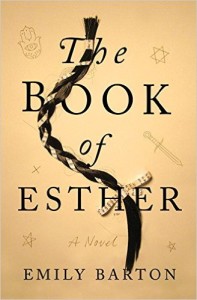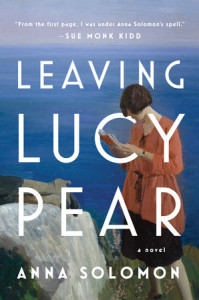Words of the Week
“With the writers of Orringer’s generation who choose the Holocaust as a subject, we’re watching an inevitable transition from a literature that can remember to a literature that can only imagine. Does the winking magic realism of Jonathan Safran Foer’s ‘Everything is Illuminated’ call more attention to the author than to his subject? Does the Hollywood-style feel-goodery of David Benioff’s ‘City of Thieves’ put too smooth a polish on mass suffering and death?
Orringer avoids these pitfalls and many more by making brilliant use of a deliberately old-fashioned realism to define individual fates engulfed by history’s deadly onrush. She maintains a fine balance between the novel’s intimate moments — whose emotional acuity will be familiar to admirers of her 2003 story collection, ‘How to Breathe Underwater’ — and its panoramic set-pieces. Even those monumental scenes manage to display a tactful humility: This is a story, they keep reminding us, and it’s not bringing anybody back. With its moving acknowledgment of the gap between what’s been lost and what can be imagined, this remarkably accomplished first novel is itself, in the continuing stream of Holocaust literature, an invisible bridge.
Source: Donna Rifkind (The Washington Post)
NB: This is not a new find–but I returned to it this week as I prepared for a seminar (happening later this morning) in which we’ll be discussing Orringer’s novel. And the words are all the more powerful this morning, as I consider remarks offered last night at a most special event at the CUNY Graduate Center, and as I discover news of the death today, in Hungary, of author Imre Kertesz.

 begins one night in 1917, when “Beatrice Haven sneaks out of her uncle’s house on Cape Ann, Massachusetts, leaves her newborn baby at the foot of a pear tree, and watches as another woman claims the infant as her own. The unwed daughter of wealthy Jewish industrialists and a gifted pianist bound for Radcliffe, Bea plans to leave her shameful secret behind and make a fresh start. Ten years later, Prohibition is in full swing, post-WWI America is in the grips of rampant xenophobia, and Bea’s hopes for her future remain unfulfilled. She returns to her uncle’s house, seeking a refuge from her unhappiness. But she discovers far more when the rum-running manager of the local quarry inadvertently reunites her with Emma Murphy, the headstrong Irish Catholic woman who has been raising Bea’s abandoned child—now a bright, bold, cross-dressing girl named Lucy Pear, with secrets of her own.” Leaving Lucy Pear will be published in late July; you may recall Anna’s debut novel, also a work of historical fiction, titled
begins one night in 1917, when “Beatrice Haven sneaks out of her uncle’s house on Cape Ann, Massachusetts, leaves her newborn baby at the foot of a pear tree, and watches as another woman claims the infant as her own. The unwed daughter of wealthy Jewish industrialists and a gifted pianist bound for Radcliffe, Bea plans to leave her shameful secret behind and make a fresh start. Ten years later, Prohibition is in full swing, post-WWI America is in the grips of rampant xenophobia, and Bea’s hopes for her future remain unfulfilled. She returns to her uncle’s house, seeking a refuge from her unhappiness. But she discovers far more when the rum-running manager of the local quarry inadvertently reunites her with Emma Murphy, the headstrong Irish Catholic woman who has been raising Bea’s abandoned child—now a bright, bold, cross-dressing girl named Lucy Pear, with secrets of her own.” Leaving Lucy Pear will be published in late July; you may recall Anna’s debut novel, also a work of historical fiction, titled 

